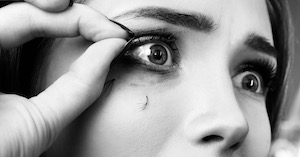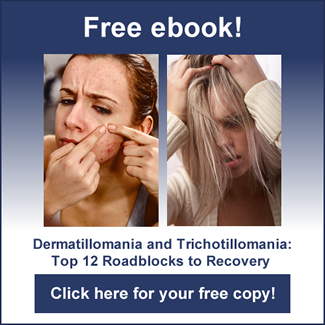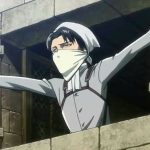
treated with Cognitive Behavioral Therapy (CBT).
“This time, I will stop doing it for real”, I would tell myself time and time again, as I convinced myself that some new strategy I came up with was going to get me to stop pulling out my eyelashes. I believed I had come up with a genius plan after I scheduled an appointment to get eyelash extensions, a lengthy process that consisted of a professional gluing individual pieces of hair onto my existing eyelashes to create fuller, longer lashes. I had always wished that I had more eyelashes, and I thought that if I spent my hard-earned money on lashes that I love, I obviously wouldn’t pull them out, right?
Wrong.
Sadly, I repeated this mistake more than once. Despite my perfect consistency, I always found myself saying “next time will be different” as I convinced myself that if I lost enough money, the punishment would deter me from pulling out my eyelashes ever again. Many lost eyelashes later, I reached a point where I finally realized that no amount of punishment, reward, or compliments on my appearance would magically reverse my hair pulling.
My desire to have long, beautiful eyelashes was no competition for the satisfying relief I felt each time a hair came out. With each hair I pulled, I felt I was removing a massive amount of anxiety from my body as I released the hair into the world, flying away from me. Of course, this relief was short-lived, and usually left me feeling ashamed and embarrassed to face the world. Unfortunately, whenever an irresistible urge crept up on me, I never cared about the emotional and physical consequences until after it was too late.
If you regularly experience a strong urge to pull out your hair, you may also be suffering from what the fifth and most recent edition of the Diagnostic and Statistical Manual of Mental Disorders (DSM-5) calls Trichotillomania or Hair Pulling Disorder. However, before and even after this condition was formally recognized by the psychiatric establishment, it was often misunderstood and mislabeled by many.
The term Trichotillomania appears to have first been used to describe compulsive hair pulling in 1889 by a French physician named Francois Henri Hallopeau. Trichotillomania was formally recognized and named in the DSM for the first time in its third edition in 1987, and has since been revised to its current description in the DSM-5. Trichotillomania is generally considered an Obsessive Compulsive Spectrum Disorder, and is currently listed in the DSM-5 within the larger category of “OCD and Related Disorders”, as it is recognized as having some features that are similar to OCD.
Trichotillomania refers to the compulsive pulling of hair anywhere on the body, and is defined by the following symptoms:
- Recurrent pulling out of one’s hair, resulting in hair loss.
- Repeated attempts to decrease or stop hair pulling.
- The hair pulling causes clinically significant distress or impairment in social, occupational or other important areas of functioning.
- The hair pulling or hair loss is not attributable to another medical condition (e.g., a dermatological condition).
- The hair pulling is not better explained by the symptoms of another mental disorder (e.g., attempts to improve a perceived defect or flaw in appearance in Body Dysmorphic Disorder).
Trichotillomania also falls into the informal category of Body Focused Repetitive Behaviors (BFRBs), a term that refers to a range of conditions in which an individual touches their hair or body in ways that result in physical damage. Other BFRBs include Skin Picking Disorder (aka Dermatillomania or Excoriation), nail-biting (Onychophagia), nail picking, lip biting, and cheek biting. The amount of time that individuals with BFRBs spend engaging in these types of repetitive behaviors varies from person to person. Some episodes may be just seconds in duration, while others may last hours.

For many with BFRBs, episodes of pulling, picking, or biting are brought on by anxiety or difficult-to-process emotions. For those suffering with Trichotillomania, when a hair is removed, they may feel a sense of satisfaction or relief. However, many others with this disorder report that there is no underlying emotion or direct incident of stress preceding the hair pulling. For many, pulling episodes occur when they are bored or simply in their comfort zone. Nevertheless, it has been reported by some that when they do stop pulling, other emotions often rise to the surface since they are no longer “numbed out” due to the trance-like state that they experience when pulling their hair.
While Trichotillomania is one condition, it can present in a variety of different ways and does not look the same for everyone. Sufferers may pull out hair from their scalp, eyebrows, eyelashes, armpits, pubic region, or any other part of the body that contains hair. Some people pull strictly from one area, while others pull from a combination of different areas. Sufferers report using their fingers, tweezers, scissors or other devices to remove the hair. About 15% of those who have Trichotillomania also report engaging in hair eating, which is known as Trichophagia. Depending on the severity, Trichophagia can cause medical complications such as a large mass of undigested hair in the gastrointestinal tract known as a Trichobezoar. Additionally, Trichotemnomania is a different variation in which sufferers compulsively cut their own hair.
There is a wealth of misunderstanding and misinformation about Trichotillomania. As such, it is helpful to distinguish hair pulling from other behaviors and conditions:
- Although Trichotillomania is categorized under “OCD and related disorders” in the DSM-5, there is a significant difference in the intention behind these behaviors. People diagnosed with OCD usually do not want to engage in their compulsions, but do so in an attempt to neutralize or eliminate their obsessive thoughts. Conversely, those with Trichotillomania usually experience a strong urge or desire to pull out their hair, which initially results in a feeling of gratification, satisfaction or pleasure, and later leads to shame and self-blame.
- Trichotillomania should also not be confused with Body Dysmorphic Disorder, a condition in which a person experiences obsessions and compulsions related to their physical appearance. Some people with BDD may compulsively remove or alter their hair in an attempt to improve a perceived flaw in their appearance, but that is not the motivation for the hair pulling experienced by those with Trichotillomania. Again, the intention of the compulsive hair puller is vastly different from that of the individual with BDD.
- Trichotillomania is not just an excessive variant of common grooming practices such as removing body hair for aesthetic purposes. Again, the critical difference is the intention behind the hair pulling. Someone who removes hair for grooming purposes typically does not spend significant amounts of time consumed by the behavior. Nor do they experience feelings of great relief during the act, nor feelings of guilt or shame afterwards. Another key difference is the impact that the behavior has on the life of the sufferer. Unlike common grooming behaviors, Trichotillomania often results in numerous undesired outcomes such as bald spots and hair thinning. It is also common for those with Trichotillomania to withdraw socially due to concerns about how their missing hair will be perceived and evaluated by others.
- Uninformed therapists and other treatment providers often incorrectly view hair pulling as a form of self-harm, self-mutilation, or self-hatred. These sorts of labels are generally off-putting to those suffering with Trichotillomania, as they experience their hair pulling as a pleasurable or self-soothing act. Therapists who use these terms run the risk of alienating their clients and perpetuating deeper feelings of shame. For this reason, it is important for sufferers to seek treatment with a therapist who has specialized training and experience working with clients with Trichotillomania.
- Likewise, it is common for well-meaning friends, family members, doctors, and therapists to label Trichotillomania as just a “bad habit”. Most people who suffer from Trichotillomania have attempted to replace or interrupt their so-called “habit”, only to become extremely frustrated with their lack of success. Labeling hair pulling as a “bad habit” ignores the complexities and profound emotional pain associated with the disorder.
Many Trichotillomania specialists have learned that it can be more helpful to conceptualize the condition as a behavioral addiction. A common definition of an addiction is: a pleasurable or self-soothing act that offers immediate gratification, allows one to escape painful thoughts or feelings, and that one continues to engage in despite adverse consequences. Hair pulling disorder is similar to an addiction in that people can have relapses and urges throughout their life and therefore they are always in ongoing recovery. Thus, recovery is best viewed as a “one day at a time” process.
Treatment for Trichotillomania/ Hair Pulling Disorder
Due to the alienating nature of this condition and the lack of awareness and understanding about it, sufferers are often afraid or ashamed to ask for help. The good news is that when they do seek treatment, many with Trichotillomania experience significant improvement via therapy that focuses on the following treatments and strategies:
- Habit Reversal Training: The gold standard treatment for Trichotillomania is a specific type of Cognitive Behavioral Therapy (CBT) called “Habit Reversal Training (HRT)”. As noted above, the word “habit” can be problematic for sufferers who fear their condition is yet again going to be reduced to a term that doesn’t adequately describe their struggles. Therapists experienced with treating Trichotillomania understand that this term has the potential to alienate sufferers, and know to address this issue head-on early in the course of therapy. Once the unfortunate name of the treatment is bypassed, clients will learn that HRT helps them to gain awareness and identify the triggers for their pulling. This is done by logging the instances in which they pull and the situation and feelings that precede their pulling. Then clients learn tools to prevent or interrupt their pulling with alternative behaviors that are not damaging.
- Cognitive Restructuring: Using this technique, individuals with Trichotillomania begin to examine the automatic thoughts that feed into their hair pulling. The sufferer learns to challenge these thoughts with more rational, objective thoughts in order to have a more balanced and realistic perspective. The premise of this technique is that when a person replaces their automatic thoughts with more helpful thoughts, this will lead to a change in feelings and behaviors as well.
- Mindfulness: Building awareness around the urge to pull is key in treating Trichotillomania. Similar to an addiction, those with a hair pulling disorder often experience great difficulty in stopping in the “middle” once the behavior has begun. When the sufferer is able to gain awareness of the urge to pull before actually pulling, they can experience a sense of having a choice before engaging in the behavior. This is achieved through learning to be more mindful or present. If you’re feeling regret, you’re in the past. And if you’re worrying, you’re in the future. From a mindfulness perspective, hair pulling is often the result of misguided efforts to control the normal and natural discomfort we experience in response to our unwanted thoughts, feelings, physical sensations, and urges to pull. The problem is not really the discomfort, but rather our obsessive desire to control and eliminate that discomfort.
- Acceptance Skills Training: Building further onto mindfulness, learning a more mindful and accepting attitude towards one’s urges can be helpful in eliminating some of the self-critical judgment and blame that surrounds hair pulling. Utilizing elements of Acceptance and Commitment Therapy (ACT), the goal is for clients to become more adept at accepting their unwanted urges, and to commit to changing their compulsive behavioral response to those urges.
- Stimulus Control Techniques: This treatment technique focuses on reducing the occurrence of the specific behavior by using “habit blockers”. These habit blockers serve as a buffer to block a person from engaging in the behavior. This can be done through a variety of ways such as wearing gloves or artificial finger nails, growing out one’s nails, using a fidget toy, wearing sunglasses, or wearing a hat. While these may seem like overly simplistic interventions, for some these actually result in the most progress during treatment.
- Self-Soothing/ Self-Care: Often times, pulling is a self-soothing act that occurs in the midst of painful feelings. In therapy, clients can learn to investigate what feelings are underneath the pulling, learn to sit with difficult emotions, and develop better ways to soothe themselves. This can include an element of self-care such as engaging in activities that are relaxing and fulfilling to the client. Similarly, incorporating other forms of coping with unwanted negative emotions such as talking about them, journaling, or confronting one’s issues can be essential for healing, and may help sufferers become less likely to use pulling as an escape from their uncomfortable feelings.
 Despite these effective treatment methods, Trichotillomania is still a condition that isn’t given much attention in the therapy world. I have had friends and family members tell me that I should “just stop”, or that, if I really wanted to, my mind could somehow get me to stop pulling. In time, I reached a point where I accepted that Trichotillomania was my own personal struggle, and that most people without this condition were unlikely to ever really understand what I was experiencing.
Despite these effective treatment methods, Trichotillomania is still a condition that isn’t given much attention in the therapy world. I have had friends and family members tell me that I should “just stop”, or that, if I really wanted to, my mind could somehow get me to stop pulling. In time, I reached a point where I accepted that Trichotillomania was my own personal struggle, and that most people without this condition were unlikely to ever really understand what I was experiencing.
As you can imagine, this recognition felt very isolating. And of course, with the addition of my new artificial eyelashes, it was much easier for others to notice when my eyelashes would once again disappear. My embarrassment and emotional pain reached a new low. Eventually, I came to realize that this had gone too far, and that I could not deal with this on my own any longer.
Although a part of me had lost hope that I would ever stop pulling, I decided to seek individual therapy. And while therapy ultimately proved to be effective, it was a long and difficult road. Before seeking a therapist who specialized in Trichotillomania, I decided to speak about it with a regular talk therapist. While she was lovely, I ultimately did not get anywhere in regard to my hair pulling, and I decided to seek out someone who specialized in treating Trichotillomania. I was immediately impressed that my therapist was so familiar with the condition, and that nothing I said surprised her. The treatment was not easy, and I had to put in a lot of work, but at last I finally felt I was not alone.
One area in which I struggled was my need for perfectionism, combined with a tendency to be hard on myself, which is not ideal for recovery from Trichotillomania. For a while, if I pulled my hair I would give up and let myself fall back into repeated pulling. In therapy, I was reminded that progress is not about being perfect by stopping hair pulling completely, but about making gradual improvement. In other words, just because I sometimes relapsed did not mean I should give up completely. While I developed creative interventions to block myself from pulling, I also learned to more effectively respond to urges, and to practice self-compassion and forgiveness when I did pull. Over time, I learned how to practice sitting with my anxiety and discomfort, something that I had attempted to avoid for far too long. I am fortunate to have found the support of a specialized therapist to help me identify and treat my condition.
A few short years ago, I would never have thought that I would be treating others with Trichotillomania. I used to think that I would not be able to recover, and I was not at all sure that I wanted to be associated with the condition. Now, after accepting myself and my flaws, I feel lucky to specialize in treating Trichotillomania, and to work with others to help them do the same.
- Chanel Taghdis, MA, LMFT, is a psychotherapist at the OCD Center of Los Angeles, a private, outpatient clinic specializing in Cognitive-Behavioral Therapy (CBT) for the treatment of Obsessive-Compulsive Disorder (OCD), Trichotillomania, Dermatillomania, and related anxiety based conditions. In addition to individual therapy, the center offers five weekly therapy groups, including a weekly online group for adults with Trichotillomania and Dermatillomania, as well as online therapy, telephone therapy, and intensive outpatient treatment. To contact the OCD Center of Los Angeles, click here.




























































22 Comments
Fascinating information! Thank you for sharing it.
Thank you Gary, I’m glad you enjoyed it!
Wow. Thank you for this personal article. As I’m reading this I find myself pulling a hair, biting my lip, biting my cheek and then picking at my face. So much of what you said resonates with me. I was diagnosed with Postnatal Depression a year ago due to baby being born prematurely (and no one in ER believing me when I said I was in labour ?) and that just triggered it to a whole new level. I have a very unflattering mullet at the moment,After letting it get way too far in lockdown. I wish therapy didn’t have this stigma around it, that people would realize the worth of it. It is a journey. I had to accept it as a part of myself in this season, and that I will have beautiful hair one day again. Thanks again! ?
Hi Halinka,
I’m glad you enjoyed and related to the article. It is definitely normal to be triggered by stressful experiences. I wish you the best of luck in your journey!
Thank you so much for sending me this…it’s very comforting to know I’m not alone. Thanks for bringing awareness to this difficult and often times shameful condition.
Thank you Carolyn, I’m glad you found this helpful. You’re definitely not alone.
I am 70 years old, I have both dermatillomania and trichotillomania. I just pulled out my last eyebrows hairs two days ago. My face looks so terrible and I just can´t stop it.
Iraima,
It is very common for people to have both Trichotillomania and Dermatillomania. The good news is that both conditions respond well to the same treatment approach! I encourage you to seek a therapist who specializes in treating these conditions using the techniques I discuss in the article.
This is so encouraging- thank you for sharing!
Of course Alison, glad you enjoyed it!
Thank You so much for sharing. Trichotillimania has probably had a drastic impact on my life. To think of all the hours I lost is a sad thing. I am in a good place right now but about to alleviate my replacement addiction and would love your help to avoid going back to hair pulling. I almost succumbed to it recently and your article means a lot. No one else I know understands or knows what I have been through.
Lori,
I’m so glad this article meant a lot to you. I know how that feels to think no one else understands. I am not sure about what the replacement addiction is or how to help with that, but if you would like some help with hair pulling urges, you may contact us. Best of luck!
Very interesting.I haven’t seen a doctor but I do often pull out my hair.However I only get the urge to pull out grey hair, it’s usually at the sides.My hair does look patchy where I tend to pull them out and I am trying my best to not pull any out.I’m trying to dye my hair so that I can’t see any grey hair.I’m too embarrassed to see the doctor about it.Has anybody heard of this where people just pull out grey hair.
Lindsay,
Your experience is not uncommon. As noted in the article, some with body dysmorphic disorder may pull out hair to fix a perceived flaw. However, some with Trichotillomania pull out hairs of a specific color or texture as well. I understand it is difficult to open up to a doctor. It could be helpful to get an assessment from someone who specializes in hair pulling.
Thank you so much for sharing this. Please someone help me. I lost my scalp hairs due to pulling repeatedly. How could I stop this?
It effects my personal life totally.
Hi Surbhi,
I understand it can have a huge effect on our lives. We would love to help. Please feel free to contact the OCD Center for some support. Best of luck!
Thanks Chanel 🙂 2021 is the year I will stop picking my fingers
Sure Paul! You can do it!
I’ve been trying to break this habit since i was 13, I’m 23 now. It has to end someday. I’m so afraid that one day my hair will never grow back
Hi Mak,
I’m sorry to hear that and you’re definitely not alone! The good news is that it is possible to see great improvement through the treatments discussed in the article. I encourage you to find a therapist using these approaches and not give up hope!
I’ve been pulling for 8-10 years and I hope my lashes will grow back
Hi Gerda,
I definitely know what that feels like! It can feel discouraging, but the good news is that treatment can be helpful. Please feel free to reach out if you are needing help.